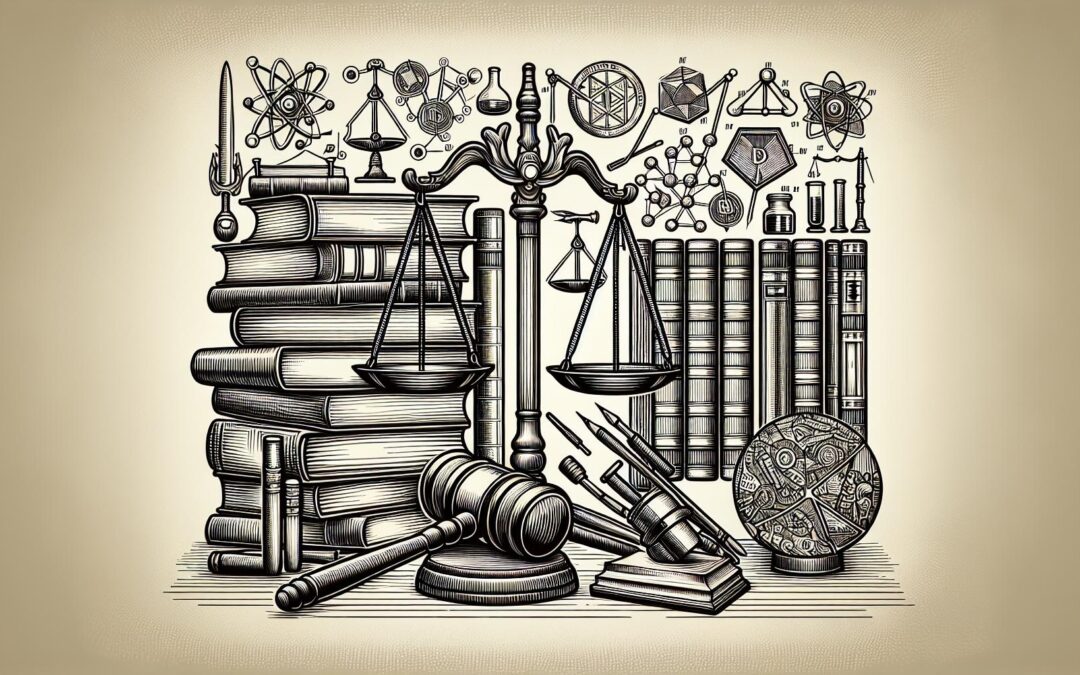Navigating the world of patent law can be complex, and preparing for the Patent Bar Exam often presents unique challenges. In this blog post, we’ll explore the key factors that contribute to the difficulty of patent bar questions and how you can effectively tackle them. Let’s dive into the intricacies of this important topic.
Understanding Patent Law Basics
A strong foundation in patent law is crucial as patent bar questions often test your understanding of fundamental concepts.
At the core of patent law lies the concept of intellectual property, which protects inventions and creative works. This fundamental principle not only shapes the field but also influences the direction of patent bar questions, emphasizing the need for a solid grasp of various IP types.
Moreover, understanding the differences between utility, design, and plant patents is integral. Each type has unique criteria and influences the questions you’ll encounter. Familiarizing yourself with relevant statutes and precedents will cultivate a deeper comprehension needed for success in this exam.
Complexity of Legal Terms
The specialized vocabulary used in patent law can make questions seem daunting and confusing.
Terms such as ‘novelty,’ ‘non-obviousness,’ and ‘prior art’ are just the tip of the iceberg. Each term carries its implications that can influence case outcomes and the answers you provide. Thus, mastering this complex terminology is vital so it does not catch you off guard during the exam.
Furthermore, the intricacy of legal jargon extends beyond definitions; it encompasses understanding how these terms interact within the framework of patent law. For instance, grasping the nuances between enforcement and infringement can unravel various scenarios posed in exam questions.
Types of Questions Asked
Patent bar questions vary in format, from multiple choice to simulations, making it essential to be well-prepared for different types.
In addition to traditional multiple-choice questions, candidates may face real-world scenarios through case studies or simulations. This variety demands adaptability and a thorough understanding of practical applications of the law. You must be ready to transition between theoretical and practical thinking seamlessly.
Moreover, familiarity with past exam patterns and question formats can provide a significant advantage. Understanding recurrent themes or common pitfalls can help candidates identify tricky questions and give them the confidence to choose the right answer.
Time Management during the Exam
With a limited amount of time to answer each question, managing your time effectively becomes a critical skill.
Time management is crucial for success on the Patent Bar Exam. Realistically assessing how long to spend on each section can prevent rushed or incomplete answers, which could compromise your results. A strategic approach to pacing can help ease anxiety and improve focus.
Consider using practice tests to hone your timing. By simulating exam conditions, you can identify which question types slow you down and practice techniques for quick, accurate answers. The goal is to develop a rhythm that allows you to tackle even the trickiest questions with confidence.
Staying Updated with Patent Laws
Patent laws are constantly evolving, so staying updated is essential for answering questions accurately.
Legislative changes, landmark cases, and shifts in patent policies can significantly impact the material covered in the exam. Candidates should familiarize themselves with these changes and ensure their study materials are current. This diligence can provide an edge in a competitive environment.
A practical strategy is integrating reliable sources, such as legal journals or patent law databases, into your study routine. Regularly reviewing these materials can help you adapt to changes and understand how new developments may influence questions on the exam.
Practice and Preparation Strategies
Effective strategies, such as taking practice exams and studying in groups, can help you overcome the challenges of patent bar questions.
Success on the Patent Bar Exam is rooted in diligent preparation. Engaging in mock exams under timed conditions can help solidify your understanding while revealing areas that need improvement. Regular practice helps instill confidence—a key factor that can make all the difference on exam day.
Additionally, consider forming study groups with fellow candidates. Sharing insights and discussing complex topics can illuminate different perspectives, making it easier to tackle challenging material. Collaborative learning not only reinforces knowledge but also keeps motivation high, turning a daunting task into an engaging journey.
Wrapping Up: Conquering the Patent Bar Exam Challenge
Understanding the challenges posed by patent bar questions is essential for effective preparation. By being aware of the complexities of the material, the types of questions that can arise, and the strategies to tackle them, you set yourself up for success. Remember, with the right mindset and preparation techniques, you can overcome these hurdles.












